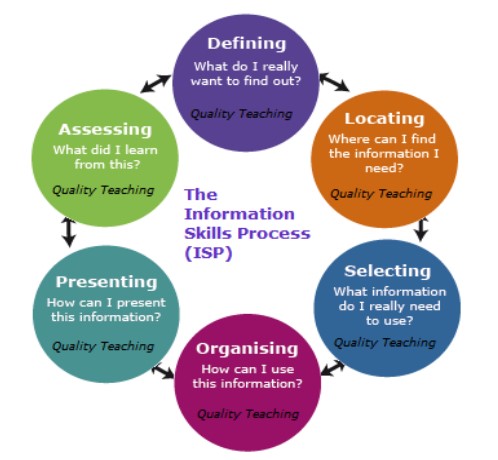Marian University Library Resources
Section outline
-
Welcome to the Marian University Library Tutorial!
The American Library Association defines Information Literacy as a set of abilities requiring individuals to “recognize when information is needed and have the ability to locate, evaluate, and use effectively the needed information.”

§ Define: purpose, why do I need information, brainstorm keywords and ideas, tasks to complete.
§ Locating: what do i know, what do i need to find out, what research resources (library databases and other materials) can i use.
§ Selecting: relevancy of information found, credibility of information found, what information do i need to use from information gathered.
§ Organizing: do i have enough information to support my purpose, how to combine information from research sources effectively and efficiently.
§ Presenting: what will i do with information, who will i share information with.
§ Assessing: did i fulfill my purpose, did i follow each step in research process, was my presentation of information effective.
If you need further assistance, please call the Reference Desk at 920-923-8096 or email: refdesk@marianuniversity.edu.
-
This 3 minute video from Vanderbilt University's Peabody Library defines scholarly journal and explains how to find scholarly, peer-reviewed articles.
-
Please click on Play slideshow to hear voice over audio!
-
Short video describing the characteristics of quantitative research.
-
-
This quiz will test your ability to find, evaluate and cite information from a variety of sources.
You must sign in with your Marian email and password to complete quiz.
-
-
There are many resources available for finding and evaluating OER. Below are resources for finding specific types of OER. Don't hesitate to contact a librarian to help you find relevant resources for your courses!
-
OER are openly licensed, most often with Creative Commons licensing or through the public domain. Creative Commons licenses allow you to engage with the 5Rs of OER.
-
Repositories are created at institutions and by organizations to house, and make searchable, textbooks, courseware, and individual learning objects. See the list below for some of the many OER repositories that are out there. New repositories are being created every year!
-
Open online courses provide public access to learning materials, usually organized in an academic format with components like lectures, readings, assignments, discussions and quizzes.
-
List or OER's images, audio, and video for added curricular value!
-
How to Find Books and E-books for Research
SabreSearch is the library's catalog. It contains information about books, journals, CDs and DVDs as well as thousands of electronic books. It also can be used to locate content available through other libraries worldwide.
E-books are electronic versions of printed books. E-books can be viewed on any computer connected to the Internet. The Cardinal Meyer Library has a diverse e-book collection including many reference titles, such as AccessScience , Encyclopædia Britannica, Oxford Art, etc.
E-books in the library collection can be searched via SabreSearch, or directly from the E-books databases section of the library website.
To learn more about locating books and e-books through the Marian University Library website, please view the tutorials below. They will walk you through the process of finding books and e-books via the Library’s catalog. These tutorials are helpful for all disciplines and subjects for academic research.
-
Learn how to search the library catalog to find all types of content from the library's physical collection and electronic collection, as well as content from other libraries worldwide.
*Music available through Creative Commons license usage. Attribution: Scott Holmes
-
-
How to Find Articles for Research
Most academic research will require you to find journal articles for your papers. Academic, scholarly and peer-reviewed journal articles are available from the library's databases.
To learn more about locating articles for research, please click on a link below to view a subject specific tutorial. Each tutorial highlights the different databases and resources available on the Marian University Library website for conducting research in various academic disciplines.
(Choose a subject and click on the appropriate link below to enter a tutorial.) -
-
This video provides an overview of how to conduct a basic search within Ebscohost databases.
-
This video gives a basic overview of how to use Advanced Searching in Ebscohost databases. Options in advanced searching will vary slightly depending on the resource being used.
-
The PICO search strategy is a way for nurses and nursing students to streamline their search process. This video highlights how to use the four elements of PICO (problem, intervention, comparison and outcome) to develop a good clinical research question prior to starting their research in a comprehensive nursing database like CINAHL Ultimate.
-
This tutorial demonstrates how to create a search using the CINAHL/MeSH Subject Headings functionality in the New EBSCOhost user interface.
-
-
-
Give us your Feedback!
Please take a moment to fill out the feedback form below. We would appreciate any comments about what is good and what should be improved with the online library tutorials.
All comments are anonymous.
Thank you!
